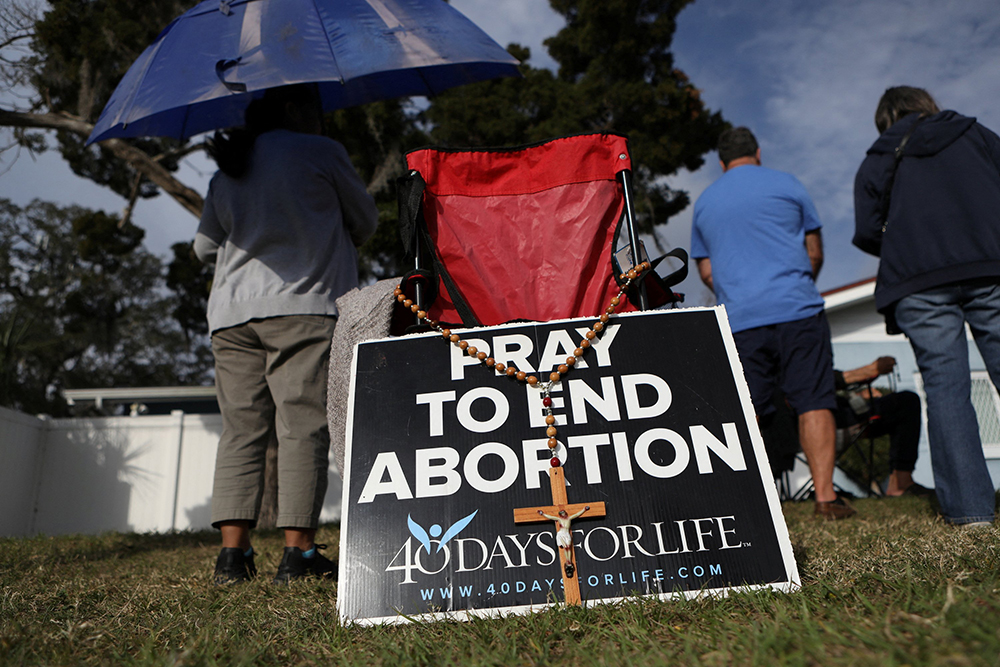
WASHINGTON -— Florida’s Supreme Court justices Feb. 7 did not seem supportive of the challenge by state officials over a ballot initiative that aims to keep abortion protections in the state Constitution.
Ashley Moody, Florida’s Republican attorney general, had asked the state’s high court to block the proposed amendment, saying that the language it used was too complicated for voters. Florida Gov. Ron DeSantis also opposes the ballot initiative.
The Florida Conference of Catholic Bishops, the public policy arm of the state’s bishops, similarly objected to the ballot’s wording. In a legal brief in opposition to the amendment, they said even the proposed ballot’s title was misleading.
The ballot initiative, designed by a coalition of abortion-rights groups, is titled, “The Amendment to Limit Government Interference with Abortion.” The aim, according to its supporters, is to create “a constitutional amendment that explicitly blocks the implementation of laws that prohibit, delay, or restrict abortion access.”
In their brief, the Florida bishops said the amendment’s title says it is to limit “government interference with abortion when the text of the amendment itself actually prohibits all regulation before viability.”
They said the ballot language “also fails to advise voters that the amendment would largely prohibit the state’s oversight of abortion clinics and provide fair notice of its impact on existing legal protections for women and children.”
The initiative would roll back the state’s current ban on abortions after 15 weeks of pregnancy to about 24 weeks, when the fetus is viable outside the womb. The proposed measure would also block a six-week abortion ban in the state that has not yet taken effect.
The coalition has already collected close to 1 million signatures, beyond the requirement needed to be placed on the 2024 ballot. If the question is allowed on the ballot, 60% of voters would have to approve it for it to pass.
The Associated Press reported that Chief Justice Carlos Muñiz said he believes Florida voters would be able to understand the ballot question and its implications. “The people of Florida aren’t stupid,” he said during the hearing. “I mean, they can figure this out.”
The court has made clear that its role is not to rule on the content of the proposed amendment, but instead to determine if its language is clear enough for voters. The justices have until April 1 to rule on the measure’s language.
The proposed amendment states: “No law shall prohibit, penalize, delay, or restrict abortion before viability or when necessary to protect the patient’s health, as determined by the patient’s healthcare provider.” It provides for one exception, which is already in the state constitution — that parents must be notified before their minor children can get an abortion.
Lawyers for the attorney general and the religious freedom group Liberty Counsel argued that the amendment would essentially ban any abortion restrictions.
Florida had allowed abortions up to 24 weeks, but in 2022, the state enacted a ban on abortions after 15 weeks, and last year, it banned the procedure after six weeks. Currently the state is awaiting a ruling from the state Supreme Court on the constitutionality of the 15-week ban. If the court affirms this ban, the path would also be cleared for the six-week ban to take effect.
